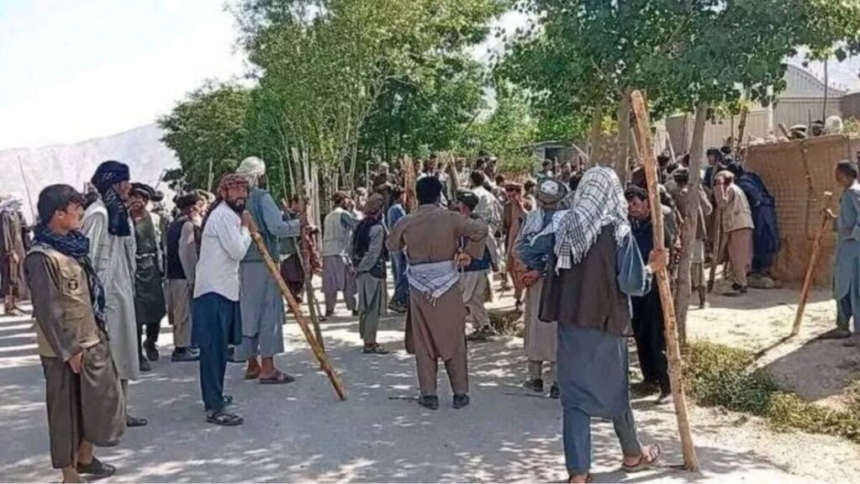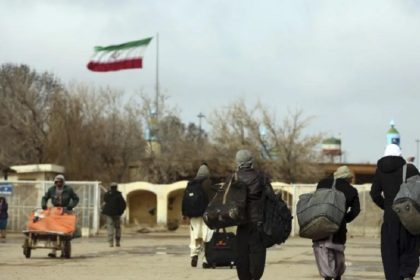RASC News Agency: A fresh wave of civil unrest has erupted in the Khash district of Afghanistan’s northeastern Badakhshan province, where hundreds of residents staged a large-scale protest on Saturday, June 21, against the Taliban’s aggressive campaign to destroy poppy fields an economic lifeline for many impoverished communities in the region. In response, the Taliban swiftly deployed a substantial number of armed units to crush the growing dissent. Local sources report that the protests began in several villages and quickly spread across the district. According to eyewitnesses, more than 70 Taliban Ranger vehicles packed with heavily armed fighters advanced toward Khash from the neighboring districts of Jurm and Bagh-e-Mubarak. Simultaneously, residents from remote and mountainous areas flooded into the district center, joining what is now one of the most visible expressions of public frustration under Taliban rule.
The protesters, primarily farmers and rural laborers, voiced outrage at the Taliban’s decision to eradicate opium poppy crops without offering any viable alternative sources of income. “If we don’t plant poppy, we have nothing to eat,” said one farmer, underscoring the desperation facing communities abandoned by both the international community and the de facto regime. Footage shared with News outlets shows fierce confrontations between residents and Taliban fighters. Protesters reportedly torched several tractors belonging to the Taliban’s so-called anti-narcotics units. In an attempt to break up the crowds, Taliban forces opened fire, according to multiple witnesses though the exact number of casualties remains unknown due to restricted access to information in Taliban-controlled regions.
This protest follows a series of similar uprisings in districts like Argo and Darayim, where local populations have decried what they perceive as the Taliban’s double standards in enforcing its opium eradication policy. While northern, non-Pashtun regions have faced strict crackdowns, many suspect that poppy fields in the Taliban’s core Pashtun strongholds remain largely untouched. Critics argue that the Taliban’s opium policy is less about reform and more about political manipulation targeting non-aligned regions while safeguarding the economic interests of their inner circle. Supreme leader Hibatullah Akhundzada’s decree banning all opium cultivation across Afghanistan has been met with increasing resistance, particularly in areas already suffering from economic neglect and ethnic marginalization under Taliban rule.
The Taliban, incapable of offering credible governance or development, continues to rely on violence and intimidation to enforce policies that deepen the country’s humanitarian crisis. Rather than addressing the root causes of rural poverty, the regime has chosen to impose blanket bans on the only livelihood many families possess, pushing communities further into desperation and revolt. Observers warn that the intensifying protests could be a precursor to broader regional instability, as more communities begin to resist the Taliban’s repressive policies. The group’s reliance on militarized responses to civilian dissent illustrates its fundamental incapacity to govern through consensus or legitimate authority.
In the absence of international accountability and amid the Taliban’s unrelenting brutality, districts like Khash may become epicenters of resistance offering a stark reminder that beneath the surface of the Taliban’s proclaimed “order” lies a deeply fractured, economically suffocated, and politically volatile Afghanistan.






